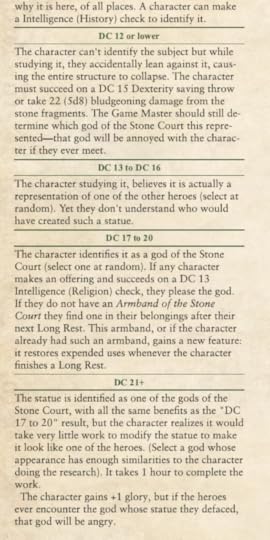Mothership: Failing Forward
So last weekend I played my first in-person session of a TTRPG in a very long time (we normally play over Roll20). We also tried out a new TTRPG system (well, new to us).
How did it go? Very, very well, I think. We all had fun. We figured out the rules quickly except for a couple confusing bits related to combat. And we had one less-experienced player joining us and they also enjoyed themselves and figured out the rules quickly. Overall I felt the session was more entertaining than a lot of the D&D experiences I’ve had recently. It was also easier on me as the GM and “faster-paced”.
I’ve been thinking about that and obviously one of the reasons is that there’s less combat (Mothership is more about the players solving problems and avoiding combat because combat is very dangerous). And combat in D&D is very time consuming with lots of decisions to make and a lot of effort on the Game Master’s side to run well.
But I think the “failing forward” process inherent in Mothership also helps tremendously with session pacing.
Failing ForwardBasically, in a failing forward approach, which as best I can tell seems to be recommended with Mothership, if a player fails a check, that check still succeeds. But the failure has consequences. This keeps sections of the adventure from just being a boring round of “Let’s reroll-the-dice until we succeed!” And it lets the Game Master come up with clever responses to failed rolls (fun!)
It was definitely one of the faster play sessions I’ve had with a TTRPG, with more focus on the players interacting with the environment and each other.
I’m now thinking about how to apply this more strategically to adventure design in general. In Raiders of the Serpent Sea I stuck to the D&D pattern for the most part (pass/fail on ability checks). However, with some of the extra content I developed for Raiders (Raiding Seas, etc.) I used graduated ability checks in some places. Here’s an an example from a random encounter:

This is an example of the graduated ability checks I use in some Raiders’ content. I liked creating these because it allowed me to generate some success-on-fail options to help Game Masters run the encounters without forcing the players to roll until they succeed.
Basically the character makes the roll and the result is what it is. It doesn’t stop or bog down the adventure. It could lead to the same solution as a success but with additional consequences. Or it could lead to false information–and an interesting subplot / alternative encounter.
How I Might Change This? In a “fail forward” approach, I’d tweak the outcomes so that all of them let the character identify the statue as the correct “god of the Stone Court”.
But how they get to that solution can have different consequences. Or another way of saying it: “The check gives them the information they need but failure introduces complications / consequences.”
Maybe something along the lines of:
A character can make a DC 17 Intelligence (History) check to identify the god of the Stone Court this statue represents. On a failure, they still identify the statue but damage it in the process of examining it:
Extreme Failure. The statue falls on the character. The statue is destroyed and the character takes 22 (5d8) Bludgeoning damage. The god this statue represents is angry if they ever meet the character.Failure. The character breaks a small piece off the statue. The god this statue represents is annoyed with the character if they ever meet the character.How about you? Any other t houghts on these approaches?
After playing Mothership, I’m definitely going to think more about how I can make the ability checks more than just a pass/fail test and build upon the graduated ability check system I’ve been using. I’ve seen how entertaining the “fail forward” approach is during a gaming session and will try to do more to encourage that in my future D&D-based adventure material!
I’m planning a new Kickstarter campaign. If you are curious to follow along, please sign up here: https://www.kickstarter.com/projects/arcanumworldscanada/raiders-of-the-serpent-sea-foundry-vtt-edition
About Runic Tales
Runic Tales is my TTRPG company. Primarily I’ve created only Raiders of the Serpent Sea content but I’ve also been contracting on other TTRPG projects (like the Exodus TTRPG). Visit the Runic Tales website to learn more.



